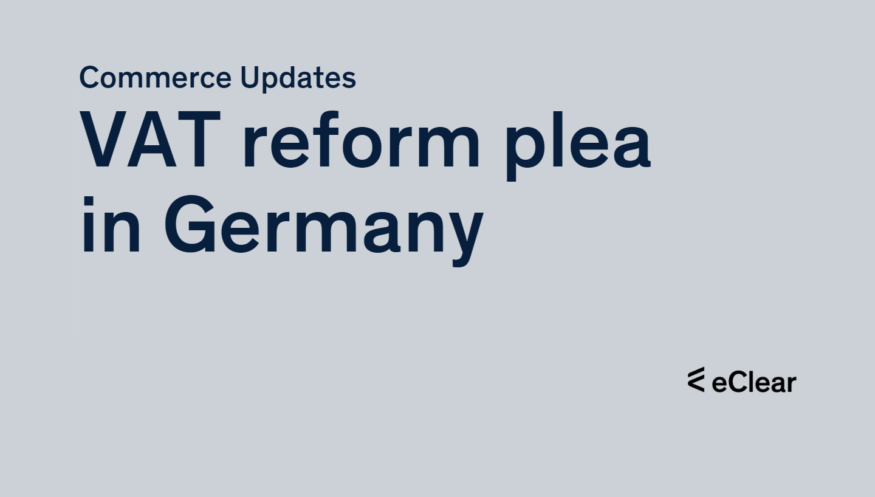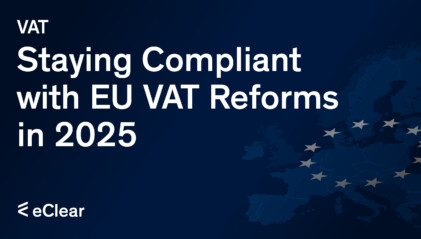A broad alliance of business associations, chambers, tax advisors and companies from industry, trade, and logistics urgently calls for further reforms to the import VAT (EUSt) from the German finance ministers. They criticise the procedure, which will be changed at the end of 2020, as burdensome and a locational disadvantage, especially for small and medium-sized enterprises. The alliance calls for introducing direct settlement, a procedure already used in almost all other EU member states.
Currently, when importing goods into the EU, companies pay the tax to the federal government, declare this weeks later to the state tax authorities as input tax and receive possible refunds even later. This procedure places a heavy financial and administrative burden on the federal government, the states, and businesses.
A recently published expert report by the German Maritime Centre (DMZ) has again highlighted the advantages of direct settlement. This model is already established in almost all European countries, such as Poland, Belgium, and the Netherlands. Austria, which is also federally organised, applies this simplified tax procedure. The alliance called on the German ministers to finally implement a German model of direct settlement.
Daniel Hosseus, Chief Executive of the Central Association of German Seaport Operators (ZDS), said on behalf of the alliance: “The current collection of import turnover tax is burdensome and represents a real competitive disadvantage. We call on the finance ministers of the federal and state governments to simplify the levying of import turnover tax and to strengthen local companies in competition. The finance ministers must act now!”
UK to Simplify Import Controls with New Model

The UK government has proposed a new Border Target Operating Model to simplify and digitise import border controls. The model, developed with stakeholders and regional governments, will streamline security and sanitary controls, particularly for food products, live animals, and plant imports from the EU. The plan also includes revamping the Export Health Certificates (EHCs) for imported animals and animal products, making them shorter and more logically formatted. Feedback on the draft model is being analysed to refine the final version.
UK Shoppers Abandon £31.5bn in Online Purchases

Online retailers are losing an estimated £31.5bn in annual sales due to delivery-related issues at checkout, according to a report by multi-carrier service provider GFS and Retail Economics. The study found that 24.8% of UK shoppers abandoned their purchases at checkout due to various delivery issues. The £31.5bn loss is attributed to factors such as lack of delivery options (£7.2bn), cost expectations (£4.9bn), delivery speed (£4.5bn), and returns policy (£4.2bn).
Despite 80% of surveyed e-commerce and supply chain professionals expressing confidence in their delivery services, the report revealed a significant gap between retailer service and consumer expectations. While 83% of retailers believe they offer a wide range of delivery options, only 48% of consumers agree.
Interestingly, the study found that consumers are willing to pay for premium delivery and return services, with 75% open to paying extra for same-day, next-day, or nominated delivery. This figure rises to 95% among millennials.
Retailers recognise the need to enhance customer experience by expanding delivery options, offering free or reduced-cost shipping, and reducing delivery times. However, the main barriers to improving delivery options are high operational expenses and the complexities of working with multiple carriers.
ECOFIN to Debate ‘ViDA’ Package

In its upcoming meeting, the Economic and Financial Affairs Council (ECOFIN) will discuss critical issues, including digital taxation, retail investment, financial services, and economic governance. The council will debate the ‘VAT in the Digital Age’ package, aimed at modernising VAT reporting and addressing challenges of the platform economy. The Commission may present its retail investment package designed to empower consumers and ensure fair market outcomes. The council will also review the state of play of legislative proposals in financial services and discuss the proposed reform of the economic governance framework. Other topics include the economic impact of Russia’s aggression against Ukraine and approving an amended recovery and resilience plan for Estonia.
€28 million carousel fraud uncovered in Italy

The European Public Prosecutor’s Office (EPPO) and the Italian Financial Police have arrested the suspected leader of a VAT fraud scheme, resulting in estimated losses of €28 million. The suspect, an Italian resident in Poland, was detained following an investigation into a complex ‘carousel’ fraud scheme that exploited EU rules on cross-border transactions.
The criminal group allegedly purchased electronic products abroad using fictitious companies based in Italy and the EU to evade VAT. The investigation revealed 70 shell companies across Europe and implicated over 20 individuals. The scheme allowed the group to generate millions in VAT credits and profit from selling technological products at significantly lower prices than honest businesses.
Assets worth more than €28 million have been frozen to recover the damage to national and EU budgets. This includes company shares belonging to the suspected ringleader and real estate in Bologna. VAT carousel fraud, also known as Missing Trader Intra-Community (MTIC) fraud, is estimated by Europol to cost EU Member States around €50 billion annually in tax losses.







